More than 13 years ago British troops went into Sierra Leone. The intervention of Operation Palliser in May 2000 marked the turning point for the country.
Sierra Leone was mired in a miserable conflict fuelled by blood diamonds and fought by child soldiers. Today the UN peacekeepers have long gone, children are in school and elections have delivered a peaceful change of government. Sierra Leonean troops are now helping to keep the peace in Somalia.
French troops have been mandated to go into Central African Republic (CAR). We hope the battle is over quickly and with as few lives lost as possible. But winning lasting peace will require action just as bold and decisive as sending troops. The country has suffered decades of insecurity and misrule that the world has largely ignored. To some, CAR appeared too remote and too difficult.
Recently, CAR has found support from a new source – the g7+, a union of fragile states that have endured similar traumas. The group has urged donors to step forward for talks.
After discussions with the group, CAR's representative, Bienvenu Hervé Kovoungbo, pleaded for urgent support. "CAR is still an aid orphan. Aid is insufficient. I made this call to donors on behalf of the entire Central African population, on behalf of those living in the bush for months, on behalf of the displaced, internally and externally, that lack everything. The new page in the history of CAR cannot be written without support from donors," he said.
So what should the UK do? It should remember its experience in Sierra Leone. The simple story of military success has often been told. The complex story of what it took – the degree of political commitment, the extent of engagement by the entire UK government and the recognition that it would take at least 10 years – is less known.
Aid was part of the story. By limiting the number of countries it worked in, the UK was able to mobilise greater support than anywhere else. It also recognised the need to take risks. It knew the army needed feeding, that the Sierra Leone government lacked the money to do so. So the UK provided the funds and started working to help the west African country collect taxes again so aid would eventually no longer be needed.
But when the UK asked other donors to help Sierra Leone, those donors were quick to explain why it was not possible. While they could not avoid paying their share for UN peacekeepers, no such donor agreement made allowance for the costs of fixing the roads or the power station. So the economic recovery took more than 10 years.
One fundamental question for the UK is whether, after its experience in Sierra Leone, it is willing to take a global lead in tackling the problem of "aid orphan" countries. In the absence of any global leadership it seems likely that CAR – the latest orphan – will suffer the same protracted agony as Sierra Leone. The rules for financing troops are set globally. There are much better mechanisms for co-ordinating humanitarian response, but the framework for winning the peace has yet to be built.
Successful intervention in Sierra Leone is precisely the reason the UK must take its place at the table when it comes to resolving the situation in Bangui. Much has changed since 2000 and the current UK government emphasis is on managing risks and delivering results and value for money.
But if anything the wide recognition that the best value for money aid investment is to prevent wars and humanitarian emergencies from occurring is even clearer.
Britain still has much to offer to CAR at a time when it needs all the friends it can get. In addition to providing logistical military support, the UK needs to help work out how to find long-term solutions. In addition the UK can play a global role in supporting organisations such as the World Bank to make sure money gets to countries when it is most needed.
Yet time is short: the funding negotiations the Bank conducts every three years are concluding. On current plans, fragile countries will receive tiny sums initially. Only after years of demonstrating good performance can they expect more.
The echoes with Sierra Leone are painfully clear. Unless there is a bold breakthrough in these negotiations, the bank that was created to rebuild postwar Europe will have little to offer CAR.
The UK voted in the UN security council approval for military intervention in CAR. But winning the peace is not just a matter of one battle. The question for the UK is whether it is willing to play a role, with others, in securing peace. There is a small role in CAR, and a larger global role, that the UK is uniquely qualified to play and which started with the bold actions of the UK military over a May weekend.
Marcus Manuel is director of the Budget Strengthening Initiative at the Overseas Development Institute. The initiative supports the world's poorest, most fragile and most conflict-affected states to develop more effective, transparent and accountable systems for managing public finances
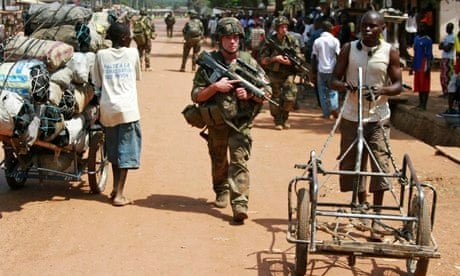
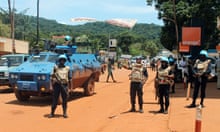
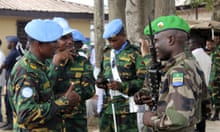
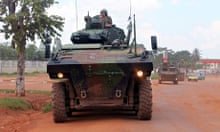

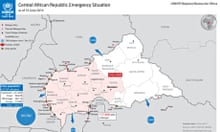

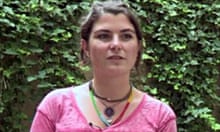
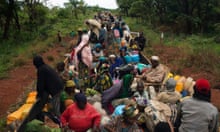
Comments (…)
Sign in or create your Guardian account to join the discussion